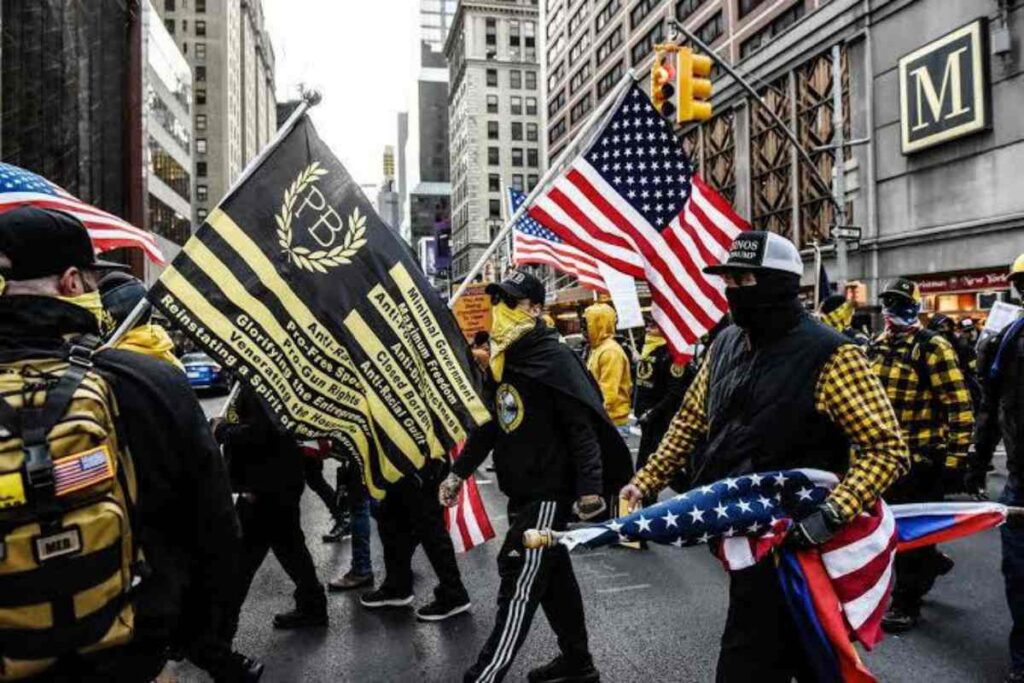U.S. District Judge Cormac J. Carney let a White Supremacist off easily, raising questions. In his sentencing memo on Thursday, April 4, 2024, Judge Carney explained why he was letting Tyler Laube off lightly. The judge says It wasn’t because of what Laube did or didn’t do.

For context, the defendant confessed to beating a journalist at a 2017 Southern California rally. He also pleaded guilty to violating riot laws as part of a white supremacist gang. However, Carney said Laube deserved a light sentence because prosecutors should have focused on leftist groups.
In a 22-page memo, Carney noted his reason for pardoning Laube. He said prosecutors have “ignored” violence committed by Antifa and instead focused on targeting people like Laube. “Sentencing Mr. Laube to additional incarceration would only increase the disparity between his punishment,” Carney wrote.
“And the lack of punishment (and prosecution) of members of far-left groups who have committed the same violent conduct received.” Hence, the judge sentenced Laube to 35 days of time served rather than the six months prosecutors had sought.
ALSO READ: Anti-Woke Advocate Michael Voris Resigns From His Far-Right Organization
The same day Laube received his sentence, the largest-ever prosecution of Antifa members in American history was going to trial. The last two defendants in the “San Diego 11” members of Antifa were sitting before a jury. The court had sentenced the other nine co-defendants, with some serving years in prison, for their crimes.
Although unrelated, experts have drawn a connection between the cases. Prosecutors charged Laube and sentenced him in a federal court. However, they charged the two Antifa defendants in San Diego, Jeremy White and Brian Lightfoot, in state court. Regardless, both cases involve fights between the far left and the far right at protests.
POLL—Is Systemic Racism a Significant Problem That Requires Reform in Policing and Other Areas?
Both involve scraps caught on camera. Furthermore, both cases focus not just on the violence but on the groups’ alleged organizing and planning before a melee. Hence, experts condemn the federal judge’s decision, criticizing his strong words and apparent political bend.
“He’s really gone off the deep end,” said John Donohue, a professor at Stanford Law School. Donohue noted that federal judges have a lot of leeway when sentencing criminals. The law professor said that the judges usually use that discretion with great care and reasoning.
However, Donohue doubts Carney exercised such caution in the Laube case, especially given the high-profile Antifa trial in San Diego. “It’s very hard for me to believe he (Carney) really has any accurate sense about what the relative prosecutions are of people on the left and the right in these assault cases,” Donohue said.
ALSO READ: Oklahoma City Residents Face Tough Decision After Electing a White Nationalist
“That would take a much more sophisticated inquiry than some federal judge just opining off the top of his head.” Like Donohue, David LaBahn, president of the Association of Prosecuting Attorneys, condemned Carney’s ruling. “It’s very disappointing for the judge to second-guess the work of the U.S. Attorney’s office,” LaBahn said.
“This sounds very political instead of the role of the judge—calling balls and strikes, justice, equality, fairness.” Despite the criticism, the federal judge has not commented on his decision. However, in an email, Carney’s courtroom deputy said that the judge is “ethically precluded from commenting on a pending case.”
You Might Also Like:
Missouri, Other States Sue Biden Administration Over Student-Debt Plan
Former ESPN Host Accuses Network Execs of Scripting Her Biden Interview
“It’s Not a Hard Choice,” Hillary Clinton Floors Voters Dreading Trump-Biden Rematch
Advocates Say Ski Mask Bans in Cities Like Philadelphia Will Criminalize Black Youth
These Are the Top Contenders for Trump’s Vice Presidential Nominee
